When it comes to ensuring home safety and compliance with fire safety regulations, a common question homeowners face is: do battery operated smoke detectors meet code requirements? The answer is yes, battery-operated smoke detectors can meet code compliance; however, they must be installed, maintained, and tested according to specific standards. This article will explore the key factors that contribute to the code compliance of battery-operated smoke detectors, and guide you through meeting legal obligations and safeguarding your home from fire hazards.
Key Takeaways
- Compliance with smoke detector codes is critical for home safety, with states having unique requirements, such as the need for interconnected alarms in some jurisdictions, and adherence to NFPA 72 standards outlining installation in every bedroom, outside sleeping areas and on all home levels.
- Both battery-operated and hardwired smoke detectors can meet code requirements if correctly installed and maintained; however, hardwired detectors offer benefits like consistent power and interconnectivity, while battery-operated detectors are more affordable and easier to install.
- Regular maintenance, including monthly testing and timely battery replacement, is essential for the effectiveness and code compliance of battery-operated smoke detectors, with the proper placement away from temperature fluctuation, dust, and cooking appliances to prevent false alarms.
Smoke Detector Code Requirements
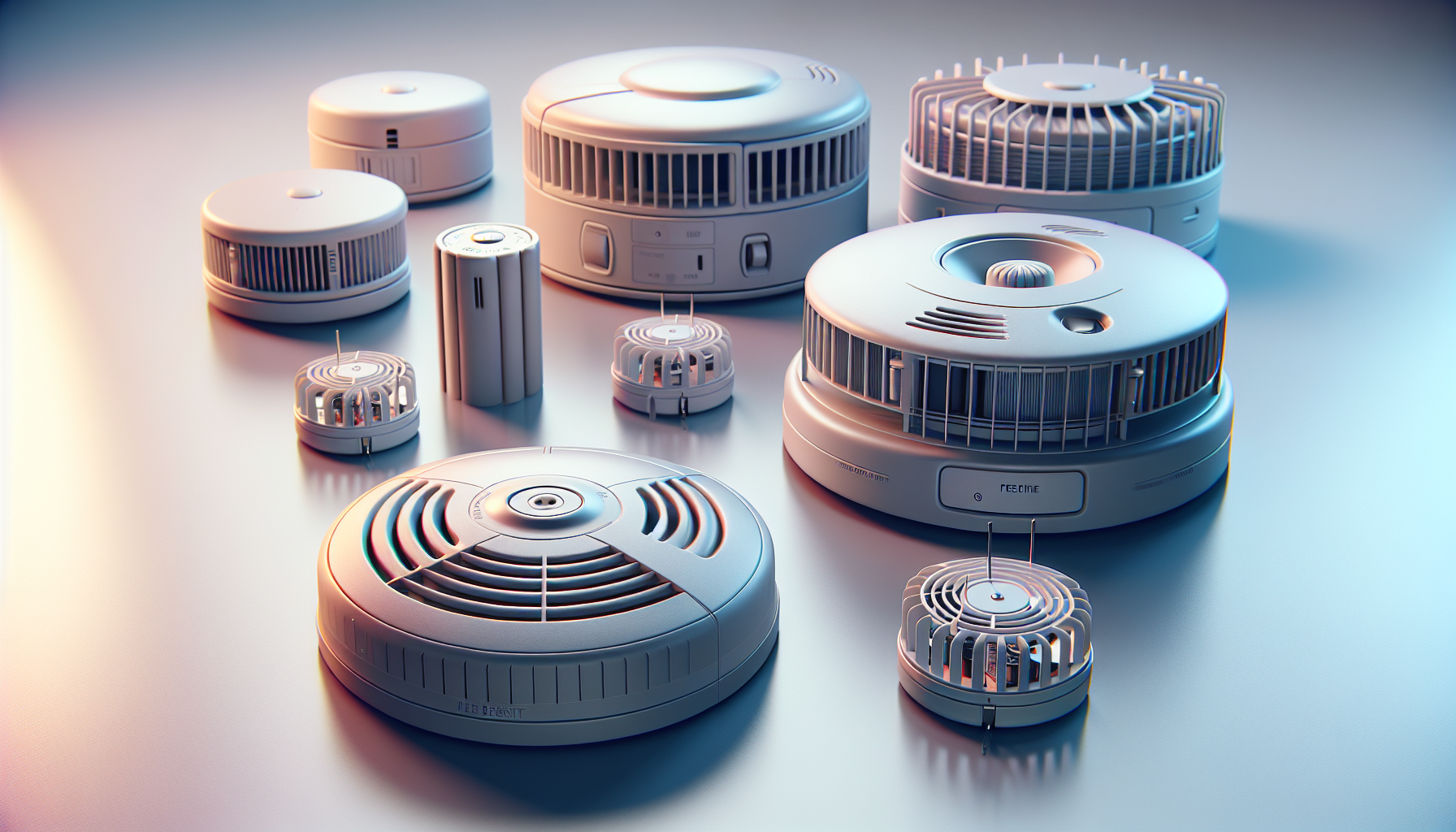
Smoke detectors are the first line of defense in the event of a house fire, alerting residents to the danger and providing crucial extra time to escape. Compliance with smoke detector codes is not merely a matter of legal obligation, but a significant aspect of home safety. These codes, which encompass installation, maintenance, and placement guidelines, serve to maximize the effectiveness of smoke detectors.
However, the exact requirements can vary depending on location, with some states necessitating additional smoke alarms installed in certain areas of the home. For instance, some states, such as Oregon, require interconnected oregon smoke alarms that sound simultaneously when one is triggered, ensuring all occupants are alerted. To comply with these regulations, it’s important to install smoke alarms as required.
Other states, like Florida and Arizona, might have more specific regulations for residential dwellings, requiring smoke alarms in each sleeping room and immediate vicinity, among other stipulations. In Arizona, smoke alarms are particularly important due to the state’s unique climate and environment.
National Fire Protection Association (NFPA) Standards
The National Fire Protection Association (NFPA) sets the standard for smoke detector placement and arrangement. According to NFPA 72 standards, smoke alarms must be installed inside each bedroom, outside each sleeping area, and on every level of the home, including the basement. Yet, it’s imperative to steer clear of placing smoke alarms near windows, doors, or ducts where drafts might disrupt their operation.
Besides these requirements, the NFPA also issues guidance on selecting smoke detectors. It’s recommended to check for UL (Underwriters Laboratories) or ETL (Intertek Testing Services) certification when choosing a smoke detector, as this indicates compliance with safety standards.
Moreover, the type of smoke detector can also affect its responsiveness to different types of fires. For instance, ionization smoke alarms are generally more responsive to flaming fires, whereas photoelectric smoke alarm is more responsive to smoldering fires.
State and Local Regulations
Although NFPA standards form a robust basis, it’s equally vital to be cognizant of state and local regulations that may impose further requirements. For instance, some states may have obligations for:
- hardwiring
- battery backup
- interconnection
- adherence to specific standards such as NFPA 72.
Grasping these specifics is paramount for compliance, achievable through research or consultation with local fire departments, often providing resources to aid residents in understanding local regulations.
Notably, interconnected smoke alarms, which are now required in many jurisdictions, have been found to be more effective in alerting residents to a fire, providing critical time for evacuation. These interconnected devices can be considered as a part of a fire alarm system.
Battery-Operated Smoke Detectors vs. Hardwired Smoke Detectors
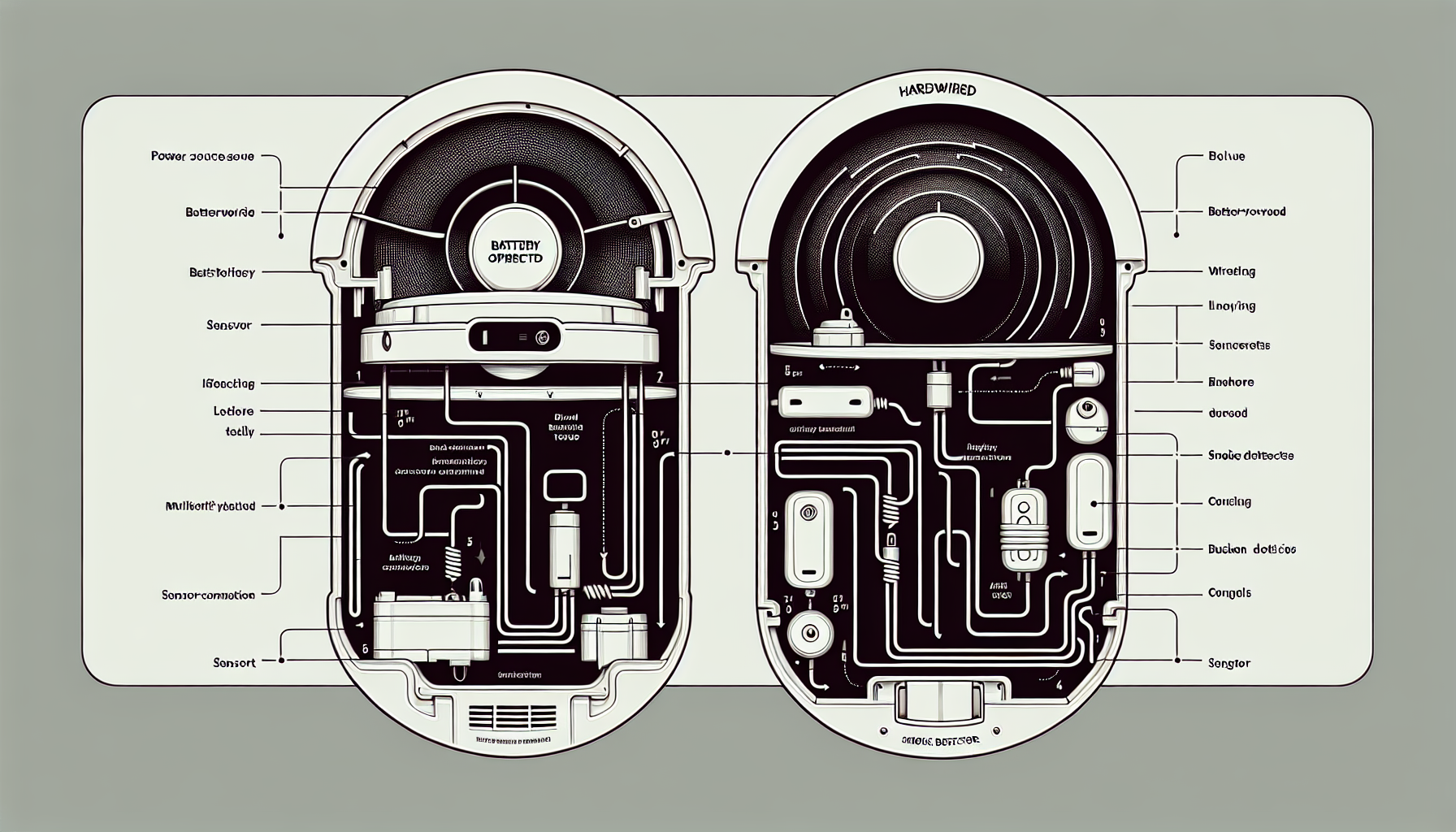
When it comes to smoke detectors, there’s an ongoing debate between battery-operated and hardwired models. Both have their merits and drawbacks, and the choice ultimately depends on various factors, including the home’s electrical setup and the owner’s preferences.
Battery-operated detectors, for instance, are less expensive to install, particularly in buildings where concealing wiring would require extensive cosmetic work. On the other hand, hardwired models offer the advantage of continuous power from the home’s electrical system, reducing the risk of battery failure and enhancing reliability of a battery operated detector.
Advantages of Battery-Operated Smoke Detectors
One of the primary advantages of battery-operated smoke detectors is their affordability. With prices starting at approximately $44, they present a more affordable option compared to the average cost of $112 for installing hardwired models. Furthermore, their installation is simpler and quicker, requiring minimal technical skills, which can be a selling point for homeowners who prefer to handle home maintenance tasks themselves.
In addition to being cost-effective and easy to install, battery-powered smoke detectors, also known as battery powered smoke alarms, have the following advantages:
- They are widely available in retail stores, ensuring ease of accessibility.
- They can be easily replaced, simplifying the process.
- They are a popular choice for many homeowners.
Advantages of Hardwired Smoke Detectors
While battery-operated smoke detectors have their advantages, hardwired models offer features that some homeowners might find appealing. For starters, these detectors are connected directly into the home’s electrical system, providing consistent power and reducing the need for battery changes. This can be particularly advantageous in larger homes where keeping track of multiple smoke detectors can be challenging.
Another significant advantage of hardwired smoke detectors is their capability to interconnect. This means that if one alarm sounds, all alarms within the home will also be triggered, ensuring prompt alert to the inhabitants. Furthermore, advanced models can connect to mobile devices for immediate alerts and can also be integrated with home security systems, offering advanced warning and emergency response options.
Meeting Code Requirements with Battery-Operated Smoke Detectors
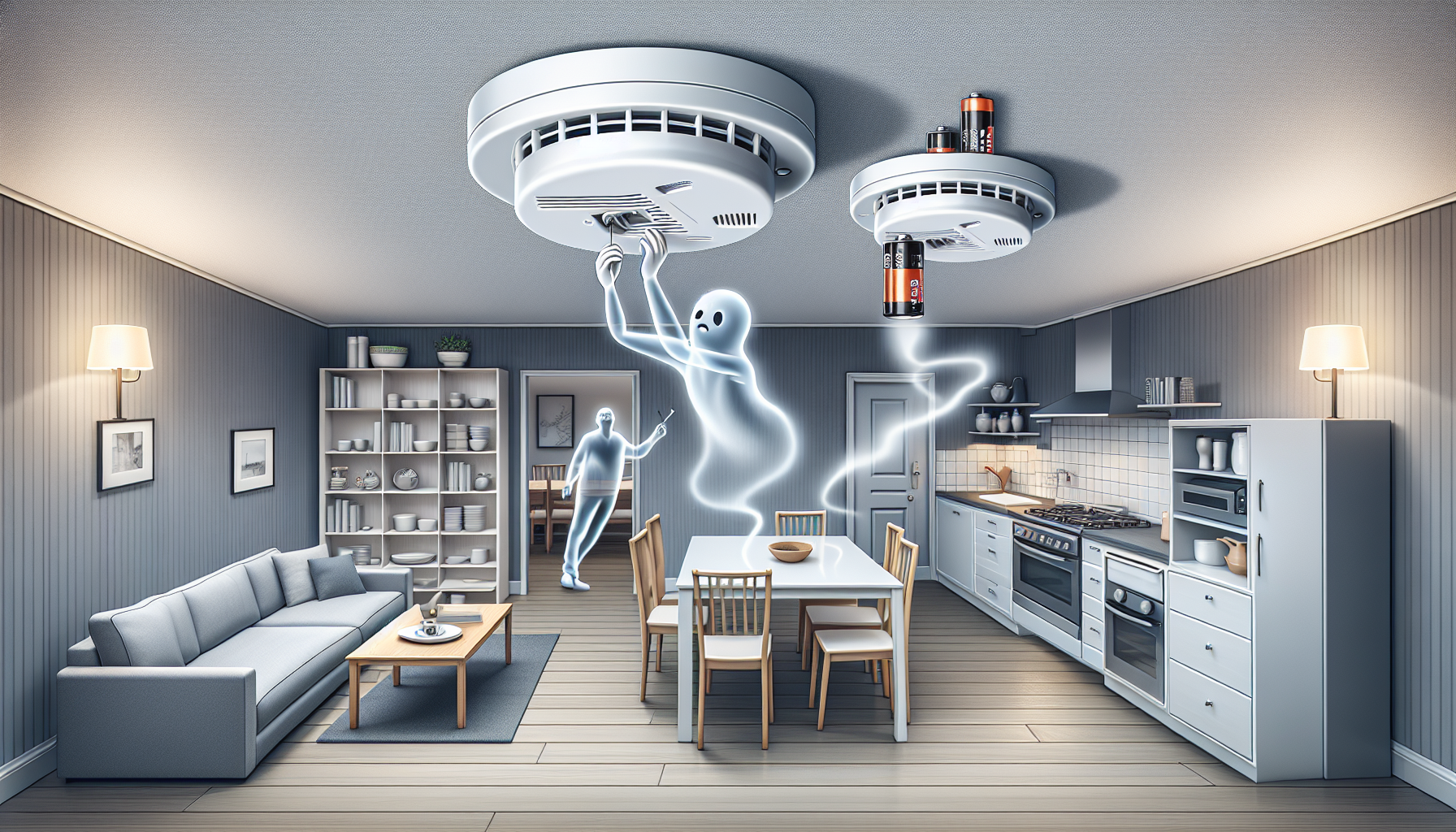
Regardless of the ongoing discussion between battery-operated and hardwired smoke detectors, it bears mentioning that both types can fulfil code requirements, given they are correctly installed, maintained, and positioned. This includes battery-operated smoke detectors, which must be installed inside each bedroom, outside each sleeping area, and on every level of the home, including the basement. However, to maintain their effectiveness and compliance, these detectors require regular maintenance, such as periodic testing and replacement of batteries.
Proper Installation
The accurate installation of battery-operated smoke detectors is vital. This involves not only the number of detectors but also their placement. For example, smoke detectors should be set up:
- Inside each bedroom
- Outside sleeping areas
- On every level of the home, including basements
- Additional detectors should also be placed in hallways outside sleeping areas, ensuring each level of the home is equipped with a detector.
Location is key since smoke ascends. Therefore, detectors should be mounted high on walls or ceilings, with wall-mounted alarms placed no more than 12 inches away from the ceiling. For homes with pitched ceilings, alarms should be installed within 3 feet of the ceiling peak but not at the peak itself to avoid dead air space where smoke may not reach. Lastly, to reduce false alarms, detectors should be positioned at least 10 feet away from cooking appliances.
Regular Maintenance
Appropriate upkeep plays a significant role in guaranteeing the effectiveness of battery-operated smoke detectors. Regular checks and battery replacements are essential, especially given that smoke detectors with replaceable batteries should have a new battery installed at least once a year or whenever a low battery chirp is heard.
In addition to battery replacement, smoke alarms must be:
- Tested monthly using the test button to ensure proper operation
- Replaced every 10 years
- Promptly replaced if there are signs of aging or an ‘end-of-life’ notification is received to maintain code compliance.
Common Issues with Battery-Operated Smoke Detectors
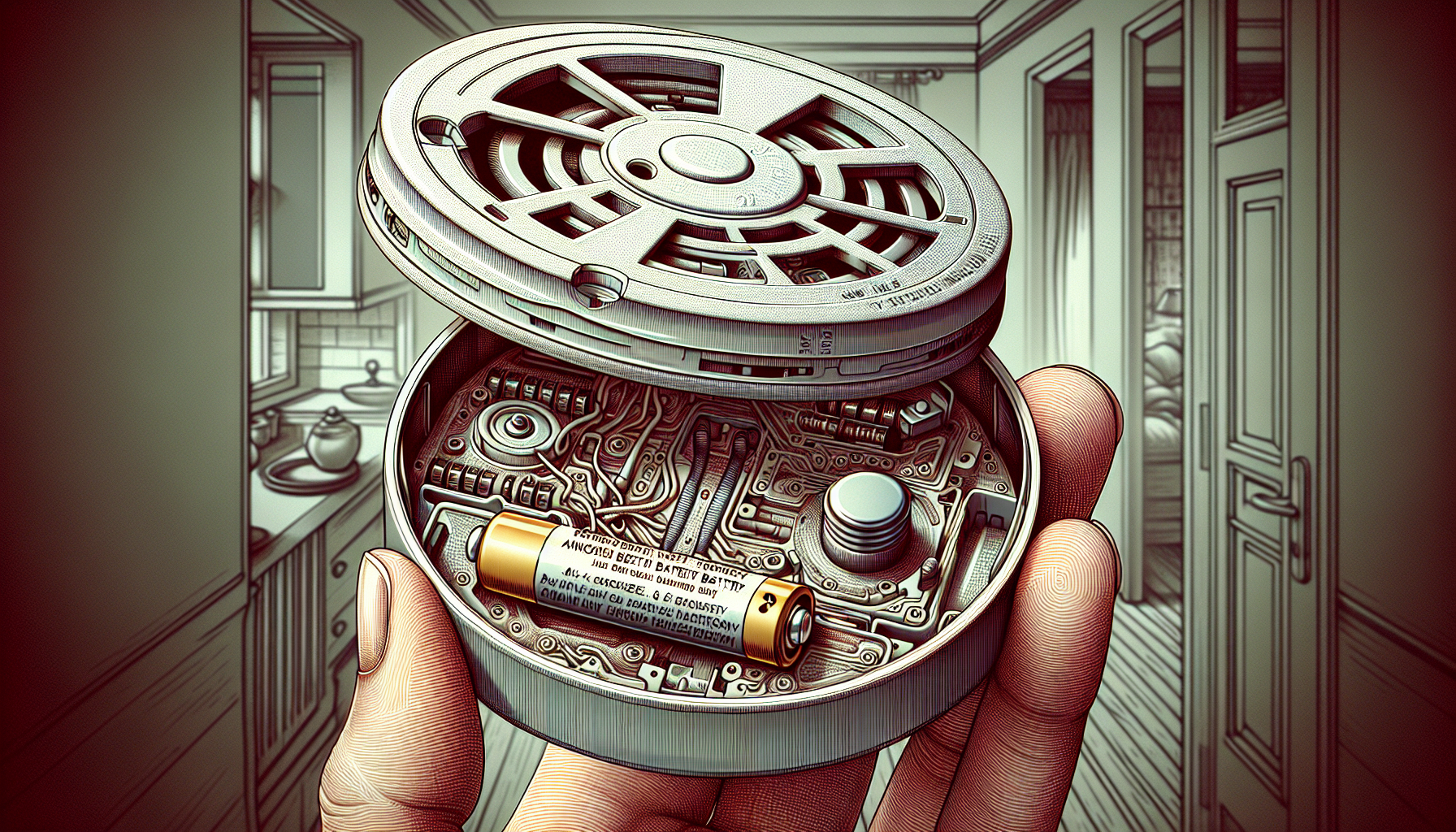
Although battery-operated smoke detectors provide various benefits, they also carry a fair share of prevalent issues. These include sensitivity to temperature variations, susceptibility to dust and debris, and the potential for unnoticed battery failure, all of which can compromise their reliability.
Moreover, dust, pollen, and other particulates can accumulate in the chamber of the smoke detector, potentially causing false alarms.
Expired Batteries
Among the most common issues with battery-operated smoke detectors is the problem of expired batteries. This can lead to non-functional detectors, compromising safety and failing to meet code requirements. Regular checks and battery replacements are essential to prevent such scenarios, with experts recommending changing smoke detector batteries every six months to a year.
One clear indication that batteries need to be replaced is when the smoke alarm emits a high-pitched chirping noise. This is a built-in feature designed to alert homeowners to the need for battery replacement.
Alternatively, smoke alarms with non-replaceable 10-year batteries provide a long-term solution. These detectors are designed to last for up to a decade without battery replacement, but if they emit a chirping signal for a low battery, the entire alarm should be replaced promptly.
Improper Placement
Improper placement of smoke detectors can also lead to problems, potentially causing delayed detection of smoke and violating code requirements. For instance, smoke detectors should not be obscured or hidden, such as being painted over or concealed behind curtains, as this may affect their performance.
Furthermore, while it can be tempting to install detectors in convenient locations, it’s crucial to follow guidelines for proper placement. For instance, smoke detectors should be placed at least 10 feet away from cooking appliances to reduce false alarms. Correct positioning is vital to ensure the effectiveness of smoke detectors and maintain compliance with codes.
How to Choose the Right Smoke Detector for Your Home
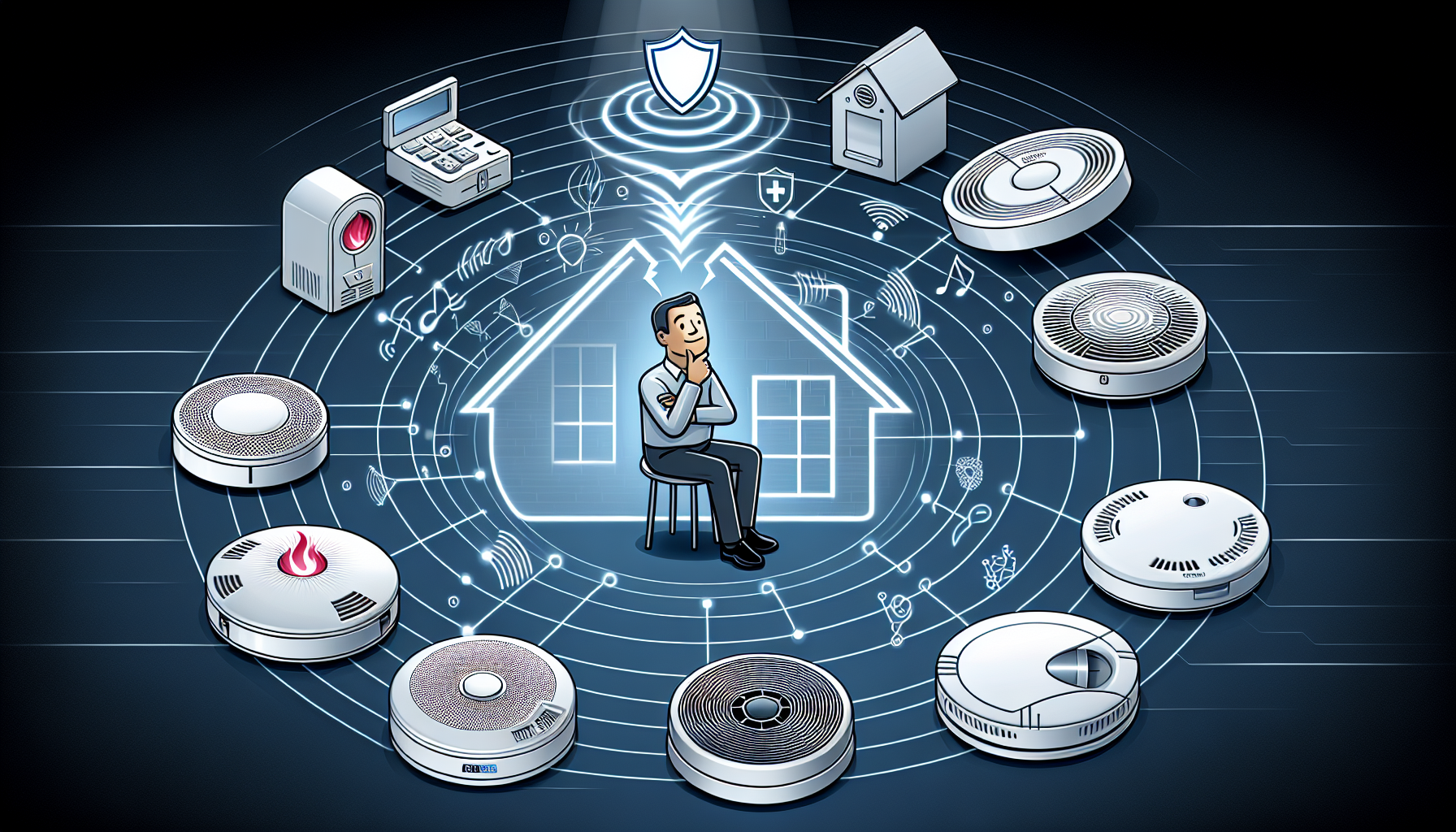
Deciding on the right smoke detector for your home takes into account multiple factors. These include the type of detector, the size of your home, the number of levels, and any specific needs of occupants. Modern smoke detectors come equipped with various features like smart technology integration and voice alerts which can provide added convenience and safety. Moreover, local regulations may have specific requirements that can influence your choice of smoke detector.
Assessing Your Needs
When assessing your needs, consider the size of your home, the number of levels, and the specific needs of any occupants. For instance, those with hearing disabilities might benefit from alarms with strobe lights or bed shakers.
Also, consider your home’s layout. The number of levels and bedrooms can influence the type and number of smoke detectors needed. For example, a large, multi-level home might require more detectors than a small, single-story house.
Researching Local Regulations
Investigating local regulations is a critical step towards selecting the ideal smoke detector for your home. These regulations can vary greatly and are often based on the specific needs and considerations of the individual community.
Most local governments and fire departments provide resources online or via phone to help residents understand the specific regulations that apply to their area. Ensuring smoke detector compliance involves:
- Understanding the types of detectors required
- Identifying suitable locations for installation
- Following the interconnectivity requirements outlined in local regulations.
Summary
In sum, understanding the code requirements for smoke detectors, especially those concerning battery-operated models, is key to ensuring home safety. Whether you opt for battery-operated or hardwired detectors, it’s crucial to follow proper installation and maintenance practices. Regular checks and battery replacements, correct placement, and compliance with local regulations are all important aspects of maintaining effective smoke detection in your home. Remember, the goal is not just to meet legal obligations, but to ensure the safety of you and your loved ones.
Frequently Asked Questions
How often does the NFPA recommend that batteries be changed in battery operated smoke detectors?
The NFPA recommends changing the batteries in your smoke alarm every 6 months.
Are hard wired smoke detectors better than battery?
Hard wired smoke detectors are better than battery-operated ones because they offer much better safety protection and are extremely reliable. They will continue to sound indefinitely until they are turned off, making them a clear winner.
Can you replace hard wired smoke detectors with battery operated?
Yes, you can replace hardwired smoke detectors with battery operated ones by disconnecting the wires from the old detectors and attaching the battery powered ones to the box. It's easier than doing it the other way around, which would involve running wire, installing a box and hooking it all up.
Are smoke detectors required to be hard wired?
Yes, hard-wired smoke alarms are required in all new construction in local jurisdictions that have adopted IRC standards. It's a standard for residential settings.
Where should I install smoke detectors in my home?
You should install smoke detectors inside each bedroom, outside each sleeping area, and on every level of the home, including basements, as well as in hallways outside sleeping areas. This is crucial for maximum fire safety in your home.
You Might Also Like...












